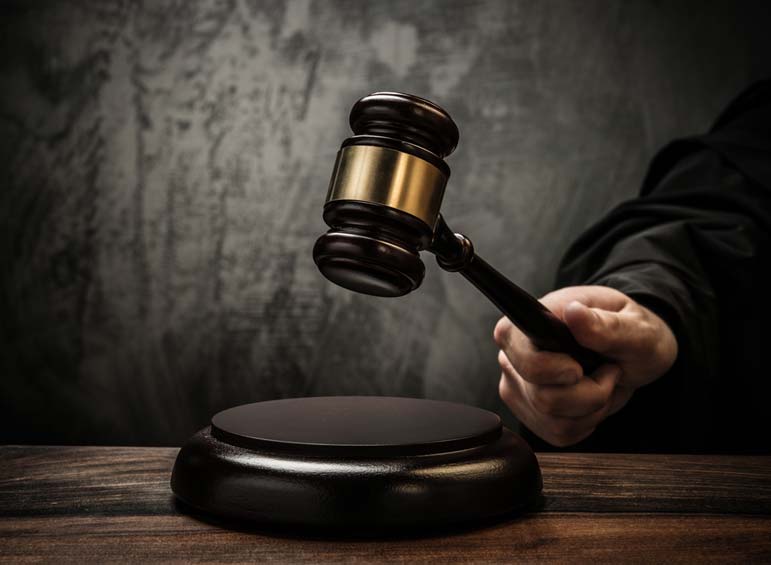
The state of Georgia is refusing to allow a couple to give their baby the last name Allah -- not because it's sacrilegious but because the state requires a baby's last name to be the same as one of its parents' or a combination of the two. That's arguably unconstitutional, although it's not an open-and-shut question. It also raises the broader question of what it means to name a child legally, and what rights parents have in relation to the government.
It's critical to keep a distinction in mind: The government has no right to tell you what name or nickname you should use when speaking to your child. That falls within free speech, and probably within your rights to shape your intimate, private associations under the due process clause of the Constitution.
What's at issue in the Allah case is a subtly different question: How may the state limit the name you can officially register on your child's birth certificate?
It could be argued that name registration falls outside the constitutional protections of free speech or privacy. Yes, it's written down on a piece of official paper, but no one necessarily uses it except the government. If that were correct, the state of Georgia could limit last names, provided it had a nondiscriminatory reason to do so.
Some support for this view comes from a 1986 U.S. Supreme Court decision called Bowen v. Roy. In that case, Stephen J. Roy and Karen Miller wanted to get food stamps for their family. As part of that bureaucratic process, they had to obtain a Social Security number for their 2-year-old daughter, whom they had (incidentally) named Little Bird of the Snow.
For religious reasons, Roy didn't want to apply for Social Security number for his daughter. As the Supreme Court described it, Roy, of Abenaki Native American descent, sincerely thought that "the uniqueness of the Social Security number as an identifier, coupled with the other uses of the number over which she has no control, will serve to 'rob the spirit' of his daughter and prevent her from attaining greater spiritual power."
Frankly, I think Roy was onto something. Bureaucratization through an assigned identification number is a key mechanism of state regulation and control in the modern era.
But the Supreme Court rejected Roy's argument, for a reason relevant to Georgia's name restriction. It held that "the Free Exercise Clause simply cannot be understood to require the Government to conduct its own internal affairs in ways that comport with the religious beliefs of particular citizens."
In essence, the court was saying that the Social Security number assigned to a person is the government's business, not a private person's. Drawing an analogy, the court said that Roy's "objection to the Government's use of a Social Security number for his daughter" was no different from "a sincere religious objection to the size or color of the Government's filing cabinets."
Arguably, registration of an official name for bureaucratic purposes resembles the assignment of a Social Security number -- a government function rather than an individual one.
To be sure, various government and nongovernment actors, from schools to health-care organizations to banks, might require you to write down the name that appears on a child's birth certificate. But that's true of the Social Security number as well.
The difference is that the government assigns the number, while the parent traditionally chooses the name. That makes naming more like an individual right, even if the name exists only on paper.
The best argument in favor of a constitutional right to choose your child's name has been made by professor Carlton Larson of the University of California at Davis School of Law. Larson reviewed baby naming laws in various states, some of which not only require the last name to derive from the parents', but also prohibit child names that are too long, nonsensical or obscene.
Larson thinks free speech and due process protect baby naming, and that laws limiting names are therefore constitutional only if they can pass strict scrutiny, meaning they meet a compelling state interest and are narrowly tailored to achieve that interest. He argues forcefully and convincingly that states that prohibit diacritical marks in baby names -- like José or MarÃa -- are violating parents' rights, especially because the same states don't prohibit names like O'Keefe.
But Larson, in a research paper, tentatively supports a restriction that doesn't currently exist in U.S. law: a statutory requirement barring names when there's an "overwhelming likelihood that the name will pose serious and lasting harm to the child's emotional well being and social development."
I think that's probably too difficult a line for states to draw. Would it be harmful to a child to be named Allah? That depends entirely on the context in which the child is raised. It might be seriously dangerous in a majority Muslim country -- or in an Islamophobic one. Elsewhere, it might not matter at all.
The upshot is that states should be allowed to restrict baby names on any rational, nondiscriminatory basis or they shouldn't be allowed to restrict them at all. The state doesn't really have a compelling interest in prohibiting any name -- even long names made of random strings of characters can be just as easily accommodated in the computer era as any other name.
If the Constitution requires a thousand baby names to bloom, then Georgia doesn't have a compelling reason to restrict children's last names to those of their parents. In today's mixed families, plenty of children have different last names from their parents. ZalyKha Graceful Lorraina Allah should have her day in court -- and win.
Comment by clicking here.
Noah Feldman, a Bloomberg View columnist, is a professor of constitutional and international law at Harvard University and the author of six books, most recently "Cool War: The Future of Global Competition."


 Contact The Editor
Contact The Editor
 Articles By This Author
Articles By This Author